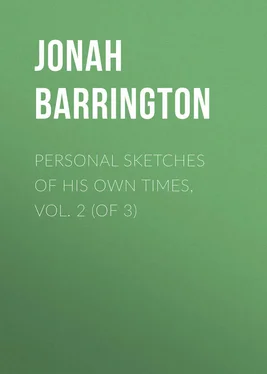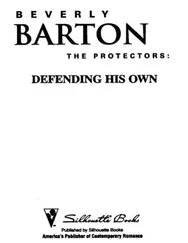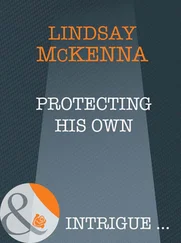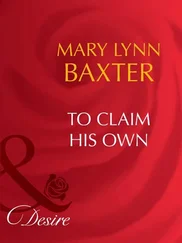Jonah Barrington - Personal Sketches of His Own Times, Vol. 2 (of 3)
Здесь есть возможность читать онлайн «Jonah Barrington - Personal Sketches of His Own Times, Vol. 2 (of 3)» — ознакомительный отрывок электронной книги совершенно бесплатно, а после прочтения отрывка купить полную версию. В некоторых случаях можно слушать аудио, скачать через торрент в формате fb2 и присутствует краткое содержание. Жанр: foreign_antique, foreign_prose, на английском языке. Описание произведения, (предисловие) а так же отзывы посетителей доступны на портале библиотеки ЛибКат.
- Название:Personal Sketches of His Own Times, Vol. 2 (of 3)
- Автор:
- Жанр:
- Год:неизвестен
- ISBN:нет данных
- Рейтинг книги:4 / 5. Голосов: 1
-
Избранное:Добавить в избранное
- Отзывы:
-
Ваша оценка:
- 80
- 1
- 2
- 3
- 4
- 5
Personal Sketches of His Own Times, Vol. 2 (of 3): краткое содержание, описание и аннотация
Предлагаем к чтению аннотацию, описание, краткое содержание или предисловие (зависит от того, что написал сам автор книги «Personal Sketches of His Own Times, Vol. 2 (of 3)»). Если вы не нашли необходимую информацию о книге — напишите в комментариях, мы постараемся отыскать её.
Personal Sketches of His Own Times, Vol. 2 (of 3) — читать онлайн ознакомительный отрывок
Ниже представлен текст книги, разбитый по страницам. Система сохранения места последней прочитанной страницы, позволяет с удобством читать онлайн бесплатно книгу «Personal Sketches of His Own Times, Vol. 2 (of 3)», без необходимости каждый раз заново искать на чём Вы остановились. Поставьте закладку, и сможете в любой момент перейти на страницу, на которой закончили чтение.
Интервал:
Закладка:
N.B. Challenges for undivulged causes may be reconciled on the ground, after one shot. An explanation or the slightest hit should be sufficient in such cases, because no personal offence transpired.
But no apology can be received, in any case, after the parties have actually taken their ground, without exchange of fires.
In the above case, no challenger is obliged to divulge his cause of challenge (if private), unless required by the challenged so to do before their meeting.
All imputations of cheating at play, races, &c. to be considered equivalent to a blow; but may be reconciled after one shot, on admitting their falsehood, and begging pardon publicly.
Any insult to a lady under a gentleman’s care or protection, to be considered as, by one degree, a greater offence than if given to the gentleman personally, and to be regulated accordingly.
Offences originating or accruing from the support of ladies’ reputation, to be considered as less unjustifiable than any others of the same class, and as admitting of slighter apologies by the aggressor: – this to be determined by the circumstances of the case, but always favourably to the lady.
In simple unpremeditated rencontres with the small sword, or couteau-de-chasse the rule is – first draw, first sheath; unless blood be drawn: then both sheath, and proceed to investigation.
No dumb-shooting or firing in the air admissible in any case . The challenger ought not to have challenged without receiving offence; and the challenged ought, if he gave offence, to have made an apology before he came on the ground: therefore, children’s play must be dishonourable on one side or the other, and is accordingly prohibited.
Seconds to be of equal rank in society with the principals they attend, inasmuch as a second may either choose or chance to become a principal, and equality is indispensable.
Challenges are never to be delivered at night, unless the party to be challenged intend leaving the place of offence before morning; for it is desirable to avoid all hot-headed proceedings.
The challenged has the right to choose his own weapon, unless the challenger gives his honour he is no swordsman; after which, however, he cannot decline any second species of weapon proposed by the challenged.
The challenged chooses his ground: the challenger chooses his distance: the seconds fix the time and terms of firing.
The seconds load in presence of each other, unless they give their mutual honours they have charged smooth and single, which should be held sufficient.
Firing may be regulated – first, by signal; secondly, by word of command; or, thirdly, at pleasure – as may be agreeable to the parties. In the latter case, the parties may fire at their reasonable leisure, but second presents and rests are strictly prohibited.
In all cases, a miss-fire is equivalent to a shot, and a snap or a non-cock is to be considered as a miss-fire.
Seconds are bound to attempt a reconciliation before the meeting takes place, or after sufficient firing or hits, as specified.
Any wound sufficient to agitate the nerves and necessarily make the hand shake, must end the business for that day .
If the cause of meeting be of such a nature that no apology or explanation can or will be received, the challenged takes his ground, and calls on the challenger to proceed as he chooses: in such cases, firing at pleasure is the usual practice, but may be varied by agreement.
In slight cases, the second hands his principal but one pistol; but, in gross cases, two, holding another case ready-charged in reserve.
Where seconds disagree, and resolve to exchange shots themselves, it must be at the same time and at right angles with their principals.
If with swords, side by side, with five paces interval.
N.B. All matters and doubts not herein mentioned will be explained and cleared up by application to the committee, who meet alternately at Clonmell and Galway, at the quarter-sessions, for that purpose. 6 6 The residue of the rules I have found among other papers since the first edition of this book was printed – but they are much defaced. There were eleven or twelve of them only, on points of honour . The rules of combat are all given; and they are full of a pugnacious sophistry , which would scarcely entertain the reader.
Crow Ryan, President,
James Keogh, }
Amby Bodkin,} Secretaries.
No party can be allowed to bend his knee, or cover his side with his left hand; but may present at any level from the foot to the eye.
None can either advance or retreat, if the ground be measured. If no ground be measured, either party may advance at his pleasure, even to touch muzzle; but neither can advance on his adversary after the fire, unless the adversary step forward on him.
N.B. The seconds on both sides stand responsible for this last rule being strictly observed, bad cases having accrued from neglect of it.
These rules and resolutions of the “Fire-eaters” and “Knights of Tara” were the more deeply impressed on my mind, from my having run a great chance of losing my life, when a member of the university, in consequence of the strict observance of one of them. A young gentleman of Galway, Mr. Richard Daly, then a Templar, had the greatest predilection for single combat of any person (not a society fire-eater) I ever recollect: he had fought sixteen duels in the space of two years; three with swords and thirteen with pistols; – yet, with so little skill or so much good fortune, that not a wound worth mentioning occurred in the course of the whole. This gentleman was called to the Bar; figured afterwards for many years as patentee of the Theatre Royal, Dublin; and had the credit of first introducing that superior woman and actress, Mrs. Jordan, when Miss Francis, on the Dublin boards.
I was surprised one winter’s evening by receiving a written challenge, in the nature of an invitation , from Mr. Daly, to fight him early the ensuing morning. I never had spoken a word to him in my life, and scarcely of him, and no possible cause of quarrel that I could guess existed between us: however, it being then a decided opinion that a first overture of that nature could never be declined, I accepted the invitation without any inquiry; writing, in reply, that as to place, I chose the field of Donnybrook fair as the fittest spot for all sorts of encounters . I had then to look out for a second, and resorted to a person with whom I was very intimate, and who, as he was a curious character, may be worth noticing. He was brother to the unfortunate Sir Edward Crosby, Bart., who was murdered by a court-martial at Carlow, May, 1798. My friend was afterward called “ Balloon Crosby,” being the first aeronaut who constructed an Hibernian balloon, and ventured to take a journey into the sky from Ireland (from Ranelagh Gardens). 7 7 His second ascent was a most unfortunate one for the spectators . It took place from the Duke of Leinster’s lawn, Merrion-square: the crowds outside were immense, and so many squeezed together and leaned against a thick parapet wall fronting the street, that it yielded to the weight and pressure, and the spectators and parapet wall came tumbling down together a great depth. Several were killed and many disabled; while Crosby sailed quietly over their heads, in all human probability, to be drowned before an hour had expired.
Интервал:
Закладка:
Похожие книги на «Personal Sketches of His Own Times, Vol. 2 (of 3)»
Представляем Вашему вниманию похожие книги на «Personal Sketches of His Own Times, Vol. 2 (of 3)» списком для выбора. Мы отобрали схожую по названию и смыслу литературу в надежде предоставить читателям больше вариантов отыскать новые, интересные, ещё непрочитанные произведения.
Обсуждение, отзывы о книге «Personal Sketches of His Own Times, Vol. 2 (of 3)» и просто собственные мнения читателей. Оставьте ваши комментарии, напишите, что Вы думаете о произведении, его смысле или главных героях. Укажите что конкретно понравилось, а что нет, и почему Вы так считаете.












